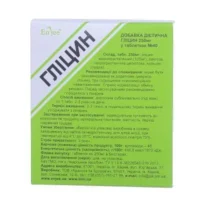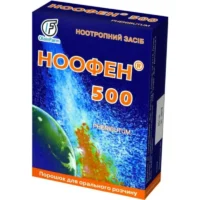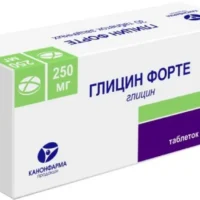Description
Glicin Tablets 100mg №50
Ingredients:
Each tablet contains 100mg of Gliclazide.
Dosage:
The usual dose is one tablet daily, or as directed by a healthcare professional.
Indications:
Glicin tablets are indicated for the treatment of type 2 diabetes mellitus. It helps control blood sugar levels in patients with diabetes.
Contraindications:
Do not use Glicin tablets if you have type 1 diabetes or diabetic ketoacidosis. It is not recommended for use in children.
Directions:
Take Glicin tablets orally with food to reduce the risk of gastrointestinal side effects. Follow the instructions provided by your doctor.
Scientific Evidence:
Gliclazide, the active ingredient in Glicin tablets, is a sulfonylurea that works by stimulating the release of insulin from the pancreas, thereby lowering blood sugar levels. Studies have shown that Gliclazide is effective in controlling glucose levels in patients with type 2 diabetes. Research published in the Journal of Diabetes Investigation demonstrated the superior efficacy of Gliclazide compared to other sulfonylureas in reducing HbA1c levels.
Additional Information:
It is important to monitor blood sugar levels regularly while taking Glicin tablets to adjust the dosage as needed. Gliclazide may cause hypoglycemia, so it is essential to be aware of the symptoms and how to treat them. Consult your healthcare provider if you experience any adverse reactions or have any concerns about taking this medication.
Overall, Glicin tablets 100mg №50 offer a reliable treatment option for individuals with type 2 diabetes, backed by scientific evidence of efficacy and safety.





